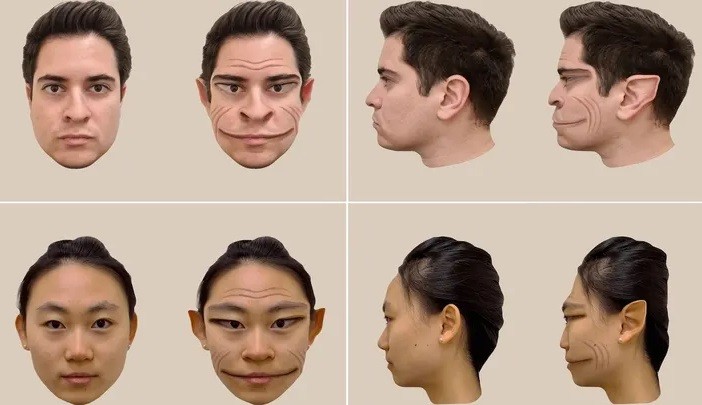26/03/2024
26/03/2024

NEW YORK, March 26: Imagine looking at someone's face and seeing it contorted into a nightmarish visage. For individuals afflicted with a rare disorder known as prosopometamorphopsia (PMO), this chilling reality is not confined to horror films—it's their everyday experience.
Researchers from Dartmouth College in Hanover, New Hampshire, have shed light on this unsettling condition, which causes facial features to appear distorted. In a study published in The Lancet, a 58-year-old man reported seeing faces as severely stretched and "demonic" for over two years.
The patient described encountering distorted features—deep grooves on foreheads, cheeks, and chins—on every person's face he encountered, yet saw no such distortions when looking at objects. Notably, he did not experience these distortions when viewing two-dimensional faces on printed paper or digital screens.
Despite the unsettling visual disturbances, the patient maintained the ability to recognize people. Researchers conducted experiments where the man compared images of individuals on a screen with their actual faces, providing valuable insights into his perception of facial distortions in real-time.
Dr. Jonathan Tiu, a neurologist and assistant professor of neurology at Hackensack Meridian School of Medicine in New Jersey, reviewed the findings and emphasized the intriguing nature of the patient's ability to still recognize faces despite the distortions. This suggests a potential dissociation between facial visual processing and facial recognition within the brain.
The term "prosopometamorphopsia" derives from "prosopo" (Greek for face, prosopon) and "metamorphopsia," denoting perceptual distortions. Tiu explained that PMO is a rare visual disorder characterized by twisting, stretching, or misplaced facial features.
Experts speculate that PMO may result from injuries to specific brain regions involved in facial processing, possibly stemming from strokes, tumors, migraines, or seizures. However, the exact mechanisms and predisposing factors remain unclear.
While PMO is exceedingly rare, with fewer than 100 documented cases, its impact can be profound. Misdiagnoses, such as schizophrenia, are not uncommon, highlighting the importance of accurate diagnosis and awareness.
Treatment for PMO varies depending on the underlying cause, with some cases resolving spontaneously within days to weeks. However, long-term recovery may take years, underscoring the need for tailored interventions and support.
By raising awareness of PMO, researchers aim to provide insights into this enigmatic condition and dispel misconceptions surrounding it. As Professor Brad Duchaine remarked, "It's a problem that people often don't understand," emphasizing the importance of continued research and support for individuals affected by PMO.


